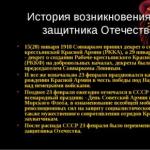"Game of Hopscotch" is a 1963 experimental novel by Argentine writer Julio Cortázar.
"Game of Hopscotch" summary
According to the preface left by the writer himself, the book contains “many books” at once, however, at a minimum, Cortazar offers two reading techniques: the usual one, which includes the first two parts of the novel - “On the other side” and “On this side” and which completes the main plot, and reading according to a special scheme, according to which the chapters from the part “On Other Sides” should also be read. The order in which a book should be read is set by the writer himself and can be followed using an outline or indexes at the end of each chapter. The scheme includes all chapters of the novel, except for the penultimate one, the 55th.
The action takes place in the 1950s.
Horacio Oliveira, a forty-year-old Argentine with no particular occupation, lives very modestly in Paris on money occasionally sent from Buenos Aires by wealthy relatives. His favorite pastime is wandering aimlessly around the city. Horacio came here quite a long time ago, following the example of his compatriots, who are accustomed to go to Paris, as they say, for the education of feelings. Absorbed into himself, constantly analyzing his thoughts, experiences, actions, he is convinced of his “otherness” and deliberately contrasts himself with the surrounding reality, which he absolutely does not accept. It seems to him that true existence is located outside the territory of everyday life, and he constantly waits from the outside for a solution to his internal problems. He again and again comes to the conclusion that it is “much easier for him to think than to be and act,” and his attempts to find himself in this life are “trampling in a circle, the center of which is everywhere, and the circumference is nowhere.” Horacio feels absolute loneliness, such when it is impossible to even count on communicating with himself, and then he stuffs himself into a movie, or a concert, or visiting friends. He cannot understand his relationships with women - the Frenchwoman Paula and the Uruguayan Maga. Having learned that Paula is sick - she has breast cancer - he stops dating her, thus finally making his choice. Maga wants to become a singer and is taking music lessons. Your little son She is forced to leave Rocamadour in the village with a nurse. To save rather meager funds, Horacio and Maga decide to move in together. “We weren’t in love with each other, we were just making love with detachment and critical sophistication,” Horacio will remember. Sometimes Maga even irritates him, because she is not very educated, not so well-read, he does not find in her the refined spirituality that he strives for. But Maga is natural, spontaneous, she is the embodiment of all understanding.
Horacio has a group of friends, which includes artists Etienne and Perico, writers Wong, Guy Monod, Osip Gregorovius, musician Ronald, and ceramist Beps. They call their intellectual community the Snake Club and gather weekly in the attic of Ronald and Baps in the Latin Quarter, where they smoke, drink, and listen to jazz from old, overplayed records by the light of green candles. They talk for hours about painting, literature, philosophy, habitually bicker, and their communication is more reminiscent not of a conversation between friends, but of a competition between snobs. Studying the archive of the old, dying writer Morelli, who once conceived a book that remains in the form of scattered notes, provides abundant material for discussing the modern style of writing, avant-garde literature, which in its very essence is incitement, debunking and ridicule. Maga feels dull and insignificant next to such wise men, brilliant fanfare of word debate. But even with these people who are close in spirit and way of thinking, Horacio sometimes feels painful; he does not feel deep affection for those with whom “by pure chance he crossed paths in time and space.”
When Rocamadour falls ill and Maga has to take the baby and care for him, Horacio is unable to overcome his frustration and irritation. The death of his child also leaves him indifferent. The friends, who organized a kind of court of honor, cannot forgive Horacio either for his “elimination” at a difficult moment for Magi, or for the insensitivity he showed in this situation. Maga leaves, and Horacio only now realizes that he loved this girl and, having lost her, lost the core of his life. He finds himself truly alone and, having strayed from his already familiar circle, seeks “brotherhood” in the company of vagabonds, but ends up in police custody and is sentenced to deportation from the country.
And now, many years after leaving his homeland, Horacio finds himself again in Buenos Aires. He ekes out a vegetable existence in a hotel room and condescendingly endures the touching bourgeois solicitude of Hekrepten. He maintains close communication with his youth friend Traveler and his wife Talita, who work in the circus. Horacio enjoys their company, but always experiencing a mania of spiritual conquest towards his friends, this time he is seriously afraid of “sowing doubts and disturbing the peace of good people.” Talitha somehow reminds him of Maga, and he involuntarily reaches out to her. Traveler is somewhat worried when he notices this, but he values his friendship with Horacio, in conversations with whom he finds an outlet after suffering for a long time from a lack of intellectual communication. And yet Horacio almost casually destroys the happy love of his friends.
Circus owner Ferraguto buys a psychiatric clinic, and all three get a job there. In an unusual environment, at first it is difficult for them, but Horacio increasingly experiences strangeness in his psyche, he is tormented by remorse, and he is increasingly confident that Maga died through his fault. Convincing himself that Traveler intends to deal with him out of jealousy, Horacio threatens to throw himself out of the window onto the slabs of the cobbled courtyard. Traveler's trusting tone and faithful behavior force him to postpone his plans. Locked alone in the room and looking out the window, Horacio thinks about a possible way out for himself: “A terribly sweet moment when it’s best to lean down a little and let yourself go - bang! And the end! But below are loving, sympathetic, concerned, worried about him, Traveler and Talita.
The ending of the novel remains open. Whether Horacio took his last step into the void or changed his mind is up to the reader to decide. The alternation of episodes when Horacio, after an unfulfilled intention to commit suicide, again finds himself at home, may simply be a dying vision. And yet it seems that, having sensed the reliable authenticity of human relationships, Horacio will agree that “the only possible way to get away from the territory is to get into it to the very top.”
The work is preceded by the author's indication of a possible two-way reading of his work: one option is a sequential reading of the fifty-six chapters that form the first two parts of the novel, leaving without attention the third, which unites “optional chapters”; Another option is a whimsical order of movement through the chapters in accordance with the table compiled by the writer.
The action takes place in the 1950s.
Horacio Oliveira, a forty-year-old Argentine with no specific occupation, lives very modestly in Paris on money occasionally sent from Buenos Aires by wealthy relatives. His favorite pastime is wandering aimlessly around the city. Horacio came here quite a long time ago, following the example of his compatriots, who are accustomed to go to Paris, as they say, for the education of feelings. Absorbed into himself, constantly analyzing his thoughts, experiences, actions, he is convinced of his “otherness” and deliberately contrasts himself with the surrounding reality, which he absolutely does not accept. It seems to him that true existence is located outside the territory of everyday life, and he constantly waits from the outside for a solution to his internal problems. He again and again comes to the conclusion that it is “much easier for him to think than to be and act,” and his attempts to find himself in this life are “trampling in a circle, the center of which is everywhere, and the circumference is nowhere.” Horacio feels absolute loneliness, such when it is impossible to even count on communicating with himself, and then he stuffs himself into a movie, or a concert, or visiting friends. He cannot understand his relationships with women - the Frenchwoman Paula and the Uruguayan Maga. Having learned that Paula is sick - she has breast cancer - he stops dating her, thus finally making his choice. Maga wants to become a singer and is taking music lessons. She is forced to leave her little son Rocamadour in the village with a nurse. To save rather meager funds, Horacio and Maga decide to move in together. “We weren’t in love with each other, we were just making love with detachment and critical sophistication,” Horacio will remember. Sometimes Maga even annoys him, because she is not very educated, not so well-read, he does not find in her the refined spirituality that he strives for. But Maga is natural, spontaneous, she is the embodiment of all understanding.
Horacio has a group of friends, which includes artists Etienne and Perico, writers Wong, Guy Monod, Osip Gregorovius, musician Ronald, and ceramist Beps. They call their intellectual community the Snake Club and gather weekly in the attic of Ronald and Baps in the Latin Quarter, where they smoke, drink, and listen to jazz from old, overplayed records by the light of green candles. They talk for hours about painting, literature, philosophy, habitually bicker, and their communication is more reminiscent not of a conversation between friends, but of a competition between snobs. Studying the archive of the old, dying writer Morelli, who once conceived a book that remained in the form of scattered notes, provides abundant material for discussing the modern style of writing, avant-garde literature, which in its very essence is incitement, debunking and ridicule. Maga feels dull and insignificant next to such wise men, brilliant fanfare of word debate. But even with these people who are close in spirit and way of thinking, Horacio sometimes feels painful; he does not feel deep affection for those with whom “by pure chance he crossed paths in time and space.”
When Rocamadour falls ill and Maga has to take the baby and care for him, Horacio is unable to overcome his frustration and irritation. The death of his child also leaves him indifferent. The friends, who organized a kind of court of honor, cannot forgive Horacio either for his “elimination” at a difficult moment for Magi, or for the insensitivity he showed in this situation. Maga leaves, and Horacio only now realizes that he loved this girl and, having lost her, lost the core of his life. He turns out to be truly lonely and, having fallen out of his already familiar circle, seeks “brotherhood” in the society of vagabonds, but ends up with the police and is sentenced to deportation from the country.
And now, many years after leaving his homeland, Horacio finds himself again in Buenos Aires. He ekes out a vegetable existence in a hotel room and condescendingly endures the touching bourgeois solicitude of Hekrepten. He maintains close communication with his youth friend Traveler and his wife Talita, who work in the circus. Horacio enjoys their company, but always experiencing a mania of spiritual conquest towards his friends, this time he is seriously afraid of “sowing doubts and disturbing the peace of good people.” Talitha somehow reminds him of Maga, and he involuntarily reaches out to her. Traveler is somewhat worried when he notices this, but he values his friendship with Horacio, in conversations with whom he finds an outlet after suffering for a long time from a lack of intellectual communication. And yet Horacio almost casually destroys the happy love of his friends.
Circus owner Ferraguto buys a psychiatric clinic, and all three get a job there. In an unusual environment, at first it is difficult for them, but Horacio increasingly experiences strangeness in his psyche, he is tormented by remorse, and he is increasingly confident that Maga died through his fault. Convincing himself that Traveler, out of jealousy, intends to deal with him, Horacio threatens to throw himself out of the window onto the slabs of the cobbled courtyard. Traveler's trusting tone and faithful behavior force him to postpone his plans. Locked alone in the room and looking out the window, Horacio thinks about a possible way out for himself: “A terribly sweet moment when it’s best to lean down a little and let yourself go - bang! And the end! But below are loving, sympathetic, concerned, worried about him, Traveler and Talita.
The ending of the novel remains open. Whether Horacio took his last step into the void or changed his mind is up to the reader to decide. The alternation of episodes when Horacio, after an unfulfilled intention to commit suicide, again finds himself at home, may simply be a dying vision. And yet it seems that, having sensed the reliable authenticity of human relationships, Horacio will agree that “the only possible way to get away from the territory is to get into it to the very top.”
The work is preceded by the author's indication of a possible two-way reading of his work: one option is a sequential reading of the fifty-six chapters that form the first two parts of the novel, leaving without attention the third, which unites “optional chapters”; Another option is a whimsical order of movement through the chapters in accordance with the table compiled by the writer.
The action takes place in the 1950s.
Horacio Oliveira, a forty-year-old Argentine with no particular occupation, lives very modestly in Paris on money occasionally sent from Buenos Aires by wealthy relatives. His favorite pastime is wandering aimlessly around the city. Horacio came here quite a long time ago, following the example of his compatriots, who are accustomed to go to Paris, as they say, for the education of feelings. Absorbed into himself, constantly analyzing his thoughts, experiences, actions, he is convinced of his “otherness” and deliberately contrasts himself with the surrounding reality, which he absolutely does not accept. It seems to him that true existence is located outside the territory of everyday life, and he constantly waits from the outside for a solution to his internal problems. He again and again comes to the conclusion that it is “much easier for him to think than to be and act,” and his attempts to find himself in this life are “trampling in a circle, the center of which is everywhere, and the circumference is nowhere.” Horacio feels absolute loneliness, such when it is impossible to even count on communicating with himself, and then he stuffs himself into a movie, or a concert, or visiting friends. He cannot understand his relationships with women - the Frenchwoman Paula and the Uruguayan Maga. Having learned that Paula is sick - she has breast cancer - he stops dating her, thus finally making his choice. Maga wants to become a singer and is taking music lessons. She is forced to leave her little son Rocamadour in the village with a nurse. To save rather meager funds, Horacio and Maga decide to move in together. “We weren’t in love with each other, we were just making love with detachment and critical sophistication,” Horacio will remember. Sometimes Maga even irritates him, because she is not very educated, not so well-read, he does not find in her the refined spirituality that he strives for. But Maga is natural, spontaneous, she is the embodiment of all understanding.
Horacio has a group of friends, which includes artists Etienne and Perico, writers Wong, Guy Monod, Osip Gregorovius, musician Ronald, and ceramist Beps. They call their intellectual community the Snake Club and gather weekly in the attic of Ronald and Baps in the Latin Quarter, where they smoke, drink, and listen to jazz from old, overplayed records by the light of green candles. They talk for hours about painting, literature, philosophy, habitually bicker, and their communication is more reminiscent not of a conversation between friends, but of a competition between snobs. Studying the archive of the old, dying writer Morelli, who once conceived a book that remains in the form of scattered notes, provides abundant material for discussing the modern style of writing, avant-garde literature, which in its very essence is incitement, debunking and ridicule. Maga feels dull and insignificant next to such wise men, brilliant fanfare of word debate. But even with these people who are close in spirit and way of thinking, Horacio sometimes feels painful; he does not feel deep affection for those with whom “by pure chance he crossed paths in time and space.”
When Rocamadour falls ill and Maga has to take the baby and care for him, Horacio is unable to overcome his frustration and irritation. The death of his child also leaves him indifferent. The friends, who organized a kind of court of honor, cannot forgive Horacio either for his “elimination” at a difficult moment for Magi, or for the insensitivity he showed in this situation. Maga leaves, and Horacio only now realizes that he loved this girl and, having lost her, lost the core of his life. He finds himself truly alone and, having strayed from his already familiar circle, seeks “brotherhood” in the company of vagabonds, but ends up in police custody and is sentenced to deportation from the country.
And now, many years after leaving his homeland, Horacio finds himself again in Buenos Aires. He ekes out a vegetable existence in a hotel room and condescendingly endures the touching bourgeois solicitude of Hekrepten. He maintains close communication with his youth friend Traveler and his wife Talita, who work in the circus. Horacio enjoys their company, but always experiencing a mania of spiritual conquest towards his friends, this time he is seriously afraid of “sowing doubts and disturbing the peace of good people.” Talitha somehow reminds him of Maga, and he involuntarily reaches out to her. Traveler is somewhat worried when he notices this, but he values his friendship with Horacio, in conversations with whom he finds an outlet after suffering for a long time from a lack of intellectual communication. And yet Horacio almost casually destroys the happy love of his friends.
Circus owner Ferraguto buys a psychiatric clinic, and all three get a job there. In an unusual environment, at first it is difficult for them, but Horacio increasingly experiences strangeness in his psyche, he is tormented by remorse, and he is increasingly confident that Maga died through his fault. Convincing himself that Traveler intends to deal with him out of jealousy, Horacio threatens to throw himself out of the window onto the slabs of the cobbled courtyard. Traveler's trusting tone and faithful behavior force him to postpone his plans. Locked alone in the room and looking out the window, Horacio thinks about a possible way out for himself: “A terribly sweet moment when it’s best to lean down a little and let yourself go - bang! And the end! But below are loving, sympathetic, concerned, worried about him, Traveler and Talita.
The ending of the novel remains open. Whether Horacio took his last step into the void or changed his mind is up to the reader to decide. The alternation of episodes when Horacio, after an unfulfilled intention to commit suicide, again finds himself at home, may simply be a dying vision. And yet it seems that, having sensed the reliable authenticity of human relationships, Horacio will agree that “the only possible way to get away from the territory is to get into it to the very top.”
Retold
The work is preceded by the author's indication of a possible two-way reading of his work: one option is a sequential reading of the fifty-six chapters that form the first two parts of the novel, leaving without attention the third, which unites “optional chapters”; another option
– a whimsical order of movement through the chapters in accordance with the table compiled by the writer.
The action takes place in the 1950s.
Horacio Oliveira, a forty-year-old Argentine with no specific occupation, lives very modestly in Paris on money occasionally sent from Buenos Aires by wealthy relatives. His favorite pastime is wandering aimlessly around the city. Horacio came here quite a long time ago, following the example of his compatriots, who are accustomed to go to Paris, as they say, for the education of feelings. Absorbed into himself, constantly analyzing his thoughts, experiences, actions, he is convinced of his “otherness”
And he deliberately opposes himself to the surrounding reality, which he absolutely does not accept. It seems to him that true existence is located outside the territory of everyday life, and he constantly waits from the outside for a solution to his internal problems. He again and again comes to the conclusion that it is “much easier for him to think than to be and act,” and his attempts to find himself in this life are “trampling in a circle, the center of which is everywhere, and the circumference is nowhere.” Horacio feels absolute loneliness, such when it is impossible to even count on communicating with himself, and then he stuffs himself into a movie, or a concert, or visiting friends. He cannot understand his relationships with women - the Frenchwoman Paula and the Uruguayan Maga. Having learned that Paula is sick - she has breast cancer - he stops dating her, thus finally making his choice. Maga wants to become a singer and is taking music lessons. She is forced to leave her little son Rocamadour in the village with a nurse. To save rather meager funds, Horacio and Maga decide to move in together. “We weren’t in love with each other, we were just making love with detachment and critical sophistication,” Horacio will remember. Sometimes Maga even annoys him, because she is not very educated, not so well-read, he does not find in her the refined spirituality that he strives for. But Maga is natural, spontaneous, she is the embodiment of all understanding.
Horacio has a group of friends, which includes artists Etienne and Perico, writers Wong, Guy Monod, Osip Gregorovius, musician Ronald, and ceramist Beps. They call their intellectual community the Snake Club and gather weekly in the attic of Ronald and Baps in the Latin Quarter, where they smoke, drink, and listen to jazz from old, overplayed records by the light of green candles. They talk for hours about painting, literature, philosophy, habitually bicker, and their communication is more reminiscent not of a conversation between friends, but of a competition between snobs. Studying the archive of the old, dying writer Morelli, who once conceived a book that remained in the form of scattered notes, provides abundant material for discussing the modern style of writing, avant-garde literature, which in its very essence is incitement, debunking and ridicule. Maga feels dull and insignificant next to such wise men, brilliant fanfare of word debate. But even with these people who are close in spirit and way of thinking, Horacio sometimes feels painful; he does not feel deep affection for those with whom “by pure chance he crossed paths in time and space.”
When Rocamadour falls ill and Maga has to take the baby and care for him, Horacio is unable to overcome his frustration and irritation. The death of his child also leaves him indifferent. The friends, who organized a kind of court of honor, cannot forgive Horacio either for his “elimination” at a difficult moment for Magi, or for the insensitivity he showed in this situation. Maga leaves, and Horacio only now realizes that he loved this girl and, having lost her, lost the core of his life. He finds himself truly alone and, having strayed from his already familiar circle, seeks “brotherhood” in the company of vagabonds, but ends up in police custody and is sentenced to deportation from the country.
And now, many years after leaving his homeland, Horacio finds himself again in Buenos Aires. He ekes out a vegetable existence in a hotel room and condescendingly endures the touching bourgeois solicitude of Hekrepten. He maintains close communication with his youth friend Traveler and his wife Talita, who work in the circus. Horacio enjoys their company, but always experiencing a mania of spiritual conquest towards his friends, this time he is seriously afraid of “sowing doubts and disturbing the peace of good people.” Talitha somehow reminds him of Maga, and he involuntarily reaches out to her. Traveler is somewhat worried when he notices this, but he values his friendship with Horacio, in conversations with whom he finds an outlet after suffering for a long time from a lack of intellectual communication. And yet Horacio almost casually destroys the happy love of his friends.
Circus owner Ferraguto buys a psychiatric clinic, and all three get a job there. In an unusual environment, at first it is difficult for them, but Horacio increasingly experiences strangeness in his psyche, he is tormented by remorse, and he is increasingly confident that Maga died through his fault. Convincing himself that Traveler, out of jealousy, intends to deal with him, Horacio threatens to throw himself out of the window onto the slabs of the cobbled courtyard. Traveler's trusting tone and faithful behavior force him to postpone his plans. Locked alone in the room and looking out the window, Horacio thinks about a possible way out for himself: “A terribly sweet moment when it’s best to lean down a little and let yourself go - bang! And the end!” But below are loving, sympathetic, concerned, worried about him, Traveler and Talita.
The ending of the novel remains open. Whether Horacio took his last step into the void or changed his mind is up to the reader to decide. The alternation of episodes when Horacio, after an unfulfilled intention to commit suicide, again finds himself at home, may simply be a dying vision. And yet it seems that, having sensed the reliable authenticity of human relationships, Horacio will agree that “the only possible way to get away from the territory is to get into it to the very top.”
The work is preceded by the author's indication of a possible two-way reading of his work: one option is a sequential reading of the fifty-six chapters that form the first two parts of the novel, leaving without attention the third, which unites “optional chapters”; Another option is a whimsical order of movement through the chapters in accordance with the table compiled by the writer.
The action takes place in the 1950s.
Horacio Oliveira, a forty-year-old Argentine with no specific occupation, lives very modestly in Paris on money occasionally sent from Buenos Aires by wealthy relatives. His favorite pastime is wandering aimlessly around the city. Horacio came here quite a long time ago, following the example of his compatriots, who are accustomed to go to Paris, as they say, for the education of feelings. Absorbed into himself, constantly analyzing his thoughts, experiences, actions, he is convinced of his “otherness” and deliberately contrasts himself with the surrounding reality, which he absolutely does not accept. It seems to him that true existence is located outside the territory of everyday life, and he constantly waits from the outside for a solution to his internal problems. He again and again comes to the conclusion that it is “much easier for him to think than to be and act,” and his attempts to find himself in this life are “trampling in a circle, the center of which is everywhere, and the circumference is nowhere.” Horacio feels absolute loneliness, such when it is impossible to even count on communicating with himself, and then he stuffs himself into a movie, or a concert, or visiting friends. He cannot understand his relationships with women - the Frenchwoman Paula and the Uruguayan Maga. Having learned that Paula is sick - she has breast cancer - he stops dating her, thus finally making his choice. Maga wants to become a singer and is taking music lessons. She is forced to leave her little son Rocamadour in the village with a nurse. To save rather meager funds, Horacio and Maga decide to move in together. “We weren’t in love with each other, we were just making love with detachment and critical sophistication,” Horacio will remember. Sometimes Maga even annoys him, because she is not very educated, not so well-read, he does not find in her the refined spirituality that he strives for. But Maga is natural, spontaneous, she is the embodiment of all understanding.
Horacio has a group of friends, which includes artists Etienne and Perico, writers Wong, Guy Monod, Osip Gregorovius, musician Ronald, and ceramist Beps. They call their intellectual community the Snake Club and gather weekly in the attic of Ronald and Baps in the Latin Quarter, where they smoke, drink, and listen to jazz from old, overplayed records by the light of green candles. They talk for hours about painting, literature, philosophy, habitually bicker, and their communication is more reminiscent not of a conversation between friends, but of a competition between snobs. Studying the archive of the old, dying writer Morelli, who once conceived a book that remained in the form of scattered notes, provides abundant material for discussing the modern style of writing, avant-garde literature, which in its very essence is incitement, debunking and ridicule. Maga feels dull and insignificant next to such wise men, brilliant fanfare of word debate. But even with these people who are close in spirit and way of thinking, Horacio sometimes feels painful; he does not feel deep affection for those with whom “by pure chance he crossed paths in time and space.”
When Rocamadour falls ill and Maga has to take the baby and care for him, Horacio is unable to overcome his frustration and irritation. The death of his child also leaves him indifferent. The friends, who organized a kind of court of honor, cannot forgive Horacio either for his “elimination” at a difficult moment for Magi, or for the insensitivity he showed in this situation. Maga leaves, and Horacio only now realizes that he loved this girl and, having lost her, lost the core of his life. He turns out to be truly lonely and, having fallen out of his already familiar circle, seeks “brotherhood” in the society of vagabonds, but ends up with the police and is sentenced to deportation from the country.
And now, many years after leaving his homeland, Horacio finds himself again in Buenos Aires. He ekes out a vegetable existence in a hotel room and condescendingly endures the touching bourgeois solicitude of Hekrepten. He maintains close communication with his youth friend Traveler and his wife Talita, who work in the circus. Horacio enjoys their company, but always experiencing a mania of spiritual conquest towards his friends, this time he is seriously afraid of “sowing doubts and disturbing the peace of good people.” Talitha somehow reminds him of Maga, and he involuntarily reaches out to her. Traveler is somewhat worried when he notices this, but he values his friendship with Horacio, in conversations with whom he finds an outlet after suffering for a long time from a lack of intellectual communication. And yet Horacio almost casually destroys the happy love of his friends.
Circus owner Ferraguto buys a psychiatric clinic, and all three get a job there. In an unusual environment, at first it is difficult for them, but Horacio increasingly experiences strangeness in his psyche, he is tormented by remorse, and he is increasingly confident that Maga died through his fault. Convincing himself that Traveler, out of jealousy, intends to deal with him, Horacio threatens to throw himself out of the window onto the slabs of the cobbled courtyard. Traveler's trusting tone and faithful behavior force him to postpone his plans. Locked alone in the room and looking out the window, Horacio thinks about a possible way out for himself: “A terribly sweet moment when it’s best to lean down a little and let yourself go - bang! And the end! But below are loving, sympathetic, concerned, worried about him, Traveler and Talita.
The ending of the novel remains open. Whether Horacio took his last step into the void or changed his mind is up to the reader to decide. The alternation of episodes when Horacio, after an unfulfilled intention to commit suicide, again finds himself at home, may simply be a dying vision. And yet it seems that, having experienced the reliable authenticity of human relationships, Horacio will agree that “the only possible way to get away from the territory is to get into it to the very top.”
Summary Cortazar's novel "Hopscotch"
Other essays on the topic:
- The action takes place in the 1950s. The lucky winners of the Tourist Lottery gather in a cafe on one of the central streets of the Argentine capital...
- The action takes place in the distant future. The infallible Master of the Game and hero of Castalia Joseph Knecht, having reached the limits of formal and substantive perfection in...
- The play is preceded by a prologue spoken by one of the actors before the curtain, which is a word of praise for the farce as a genre. The prologue states...
- The author recalls that he sought to imitate the incoherent, but seemingly logical form of the dream. Time and space do not exist, clinging to a tiny basis...
- Epigraph: Fortunately, my books contain a lot of both clarity and ambiguity. Let everyone interpret as they wish. U. Eco. Have you seen...
- Part one. Shadow of the Past Summer 1958. The small town of Derry, Maine is being terrorized by a mysterious serial killer, with inhuman cruelty...
- The Olmecs are the inventors of the game. Almost all Mayan cities had ball courts. Archaeologists have discovered the ruins of “stadiums” in...
- Plan. I. Umberto Eco is one of the greatest masters of postmodernism. II. A postmodern sketch of the genre and plot of the novel “The Name of the Rose.” 1....
- Goal: to deepen some pages of the writer’s life and work; teach students to be creative in processing material; consolidate knowledge of literary theory...
- The plot of the novel is based on a story about a conspiracy that actually took place in 1642 by the favorite of King Louis XIII, the Marquis of Saint-Mars...
- Poet Irina Zhilenko cannot imagine her life without a flight of dreams. She knows that children, her favorite readers, often fly “to...
- Goal: — to interest students in studying computer science; 11. development cognitive interest students. Preliminary preparation: students 10a and 11a choose...
- Prague, beginning of the century. The narration is told in the first person. The hero is either asleep or awake. A moonbeam falls at the foot...
- Leaders: Team of authors: GBS(K)OU school No. 370, Moskovsky district of St. Petersburg: Mitnikova Elena Aleksandrovna, teacher of history and social studies, Smirnova Olga Vladimirovna,...
- Franz Biberkopf, a former cement worker and loader, has just been released from Berlin's Tegel prison, where he spent four years...
- Main character narration - Private Robert Lee Pruitt - was born and spent his childhood in the mining village of Garlan, which in the thirties...
- The novel consists of seven large parts, which are divided into short stories, not in chronological order. The story is told either from the perspective of...





